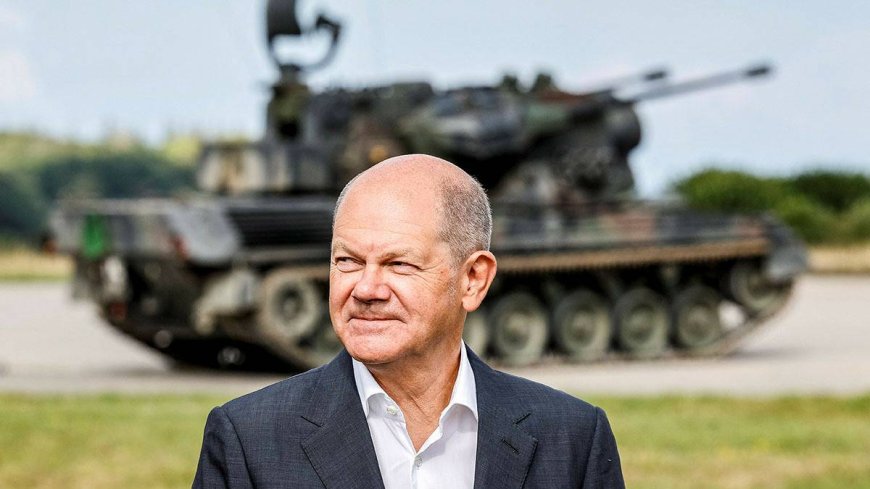Navigating the Storm: Germany's Pragmatic Approach to the Ukraine Conflict
Navigating the Storm: Germany's Pragmatic Approach to the Ukraine Conflict

The conflict in Ukraine, which has persisted for nearly eighteen months, has had profound consequences not only for Russia and Ukraine but also for several countries worldwide. Germany, with its status as the largest economy in Europe, has been particularly affected. This article examines the implications of the war on Germany's economic and geopolitical landscape, focusing on the country's relationship with Russia, its stance on sanctions, arms support for Ukraine, and its strategic considerations.
Germany's Economic Dominance:
Germany's economic power, highlighted by its gross domestic product (GDP) of $4,223 billion in 2011, positions it as a potential dominant power in the Eurozone and a global superpower. Recognizing the need for cooperation with Russia and the East to solidify its influence, Germany has pursued expanding relations with Russia to leverage its economic strength.
Germany's Growing Ties with Russia:
In recent years, Germany's relationship with Russia has significantly strengthened, reaching its zenith with the construction of the Nord Stream 1 and 2 gas procurement projects. However, the war in Ukraine disrupted Germany's plans and inflicted substantial damage on Berlin's strategic calculations.
Sanctions and Germany's Partnership with Russia:
Following the outbreak of the war, Western countries introduced sanctions against Russia as a deterrent. However, Germany initially resisted comprehensive sanctions due to its significant energy partnership with Russia. The country aimed to balance the need for deterrence with the preservation of its economic interests.
Arms Support for Ukraine:
Germany's stance on providing arms support for Ukraine has evolved over time. Initially opposed to comprehensive sanctions, Germany later recognized the importance of Ukraine's fate and the developments in the region. Consequently, providing armed support for Kiev became a priority, leading Germany to become the largest supplier of weapons to Ukraine after the United States.
Reduced Arms Assistance:
Despite its previous commitment to arms support, Germany is currently seeking to reduce its assistance to Ukraine. Reports from the German Ministry of Defense suggest a slowdown in the delivery of promised weapons. This shift in policy reflects Germany's reconsideration of the consequences and implications of its military involvement in the conflict.
Avoiding Escalation?
German authorities have expressed caution and reluctance to escalate the conflict. Recently, Chancellor Olaf Scholz emphasized his government's hesitance to deliver Taurus missiles to Ukraine, as it does not wish to drag NATO into a war with Russia. Germany aims to prevent the war from spilling over Ukraine's borders and seeks alternative security arrangements for Kiev to avoid direct conflict with Moscow.
Implications and Winners and Losers:
Germany's hesitance regarding arms support and efforts to hinder Ukraine's NATO membership indicate its desire to prevent further escalation and protect its strategic interests. Germany's concerns over activating Article 5 of the NATO Treaty, which would necessitate a collective response to an attack on a member state, highlight its cautious approach. Unfortunately, the protracted conflict in Ukraine has resulted in a significant loss of life and property for the Ukrainian people, while energy companies and weapons manufacturers have emerged as the primary beneficiaries.
Conclusion:
The war in Ukraine has had far-reaching implications for Germany, impacting its economic interests, geopolitical relationships, and strategic considerations. Berlin’s evolving stance on sanctions, arms support, and efforts to prevent further escalation demonstrate the complex challenges it faces in balancing its economic interests with broader international security concerns. As the conflict continues, it remains essential for Germany to navigate these complexities and contribute to a sustainable resolution that prioritizes peace and stability for all parties involved.













































